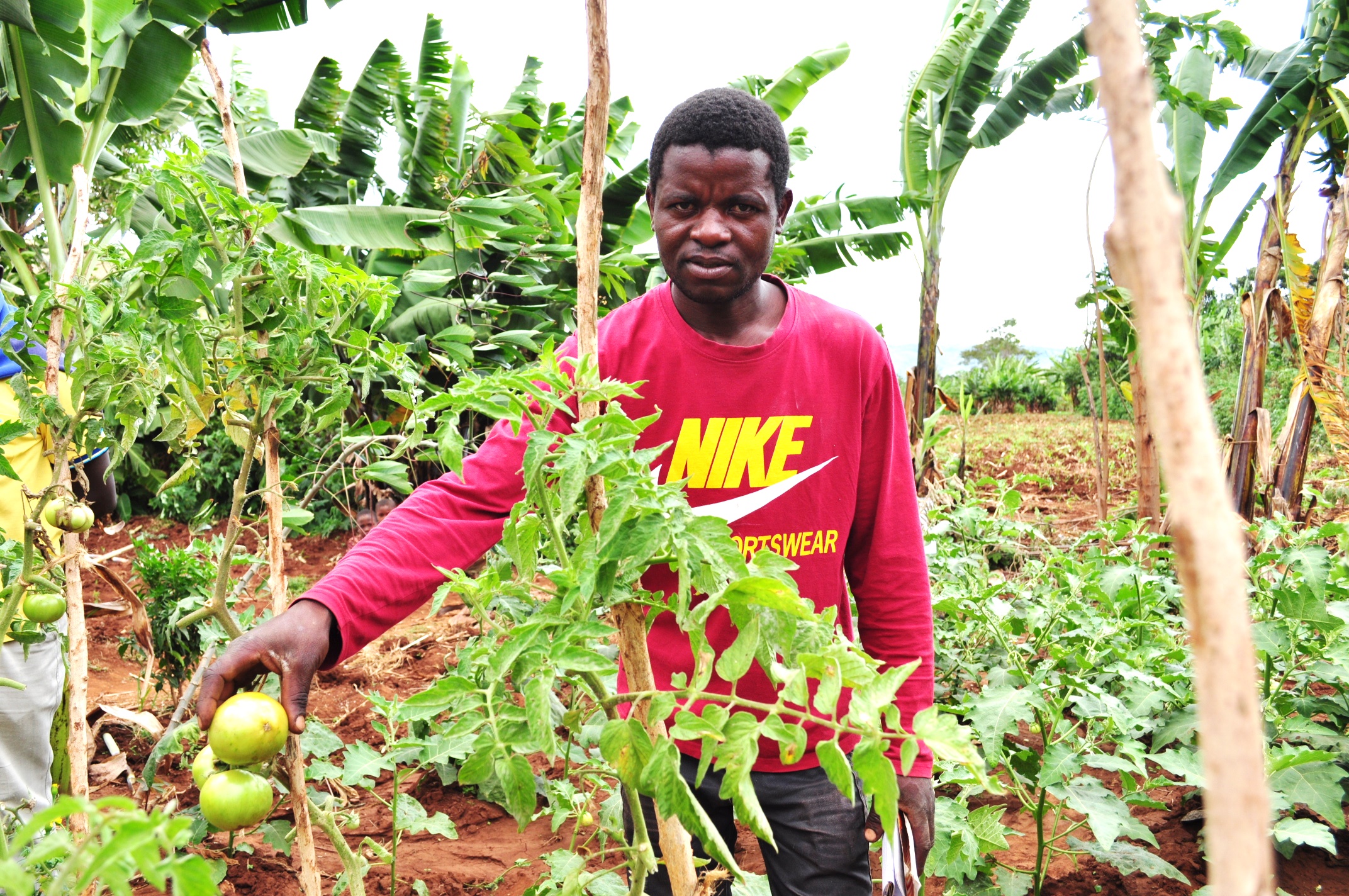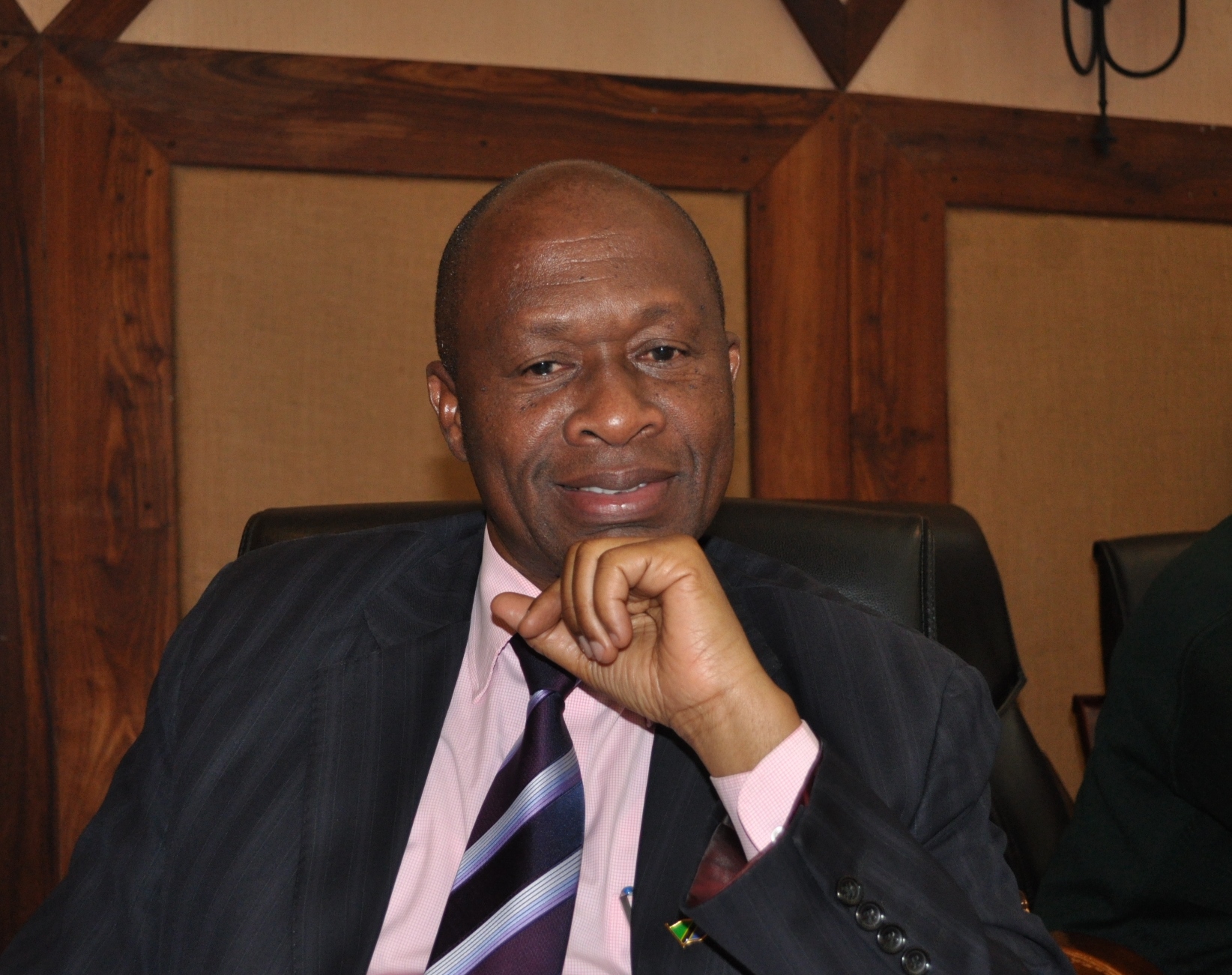Africa RISING’s integrated technologies doubling smallholder farmers’ yields in East and Southern Africa

The Africa RISING program, now in its third year, has made significant progress in getting the different researchers from different backgrounds and institutions to work together in a truly integrated way to develop science-based solutions to the challenges faced by smallholder farmers. This in turn has seen impressive increases in the productivity of smallholder farmers involved in the research project across its five districts in East and Southern Africa.
This was noted during its third annual review meeting of the program’s activities in East and Southern Africa held from 9 to 12 September in Arusha, Tanzania, which brought together the project’s researchers and partners.
Speaking during this event, Jerry Glover, Senior Advisor on Sustainable Intensification for USAID, noted that this year the research teams were truly integrated unlike at the beginning of the program where the researchers were more concerned with their specific disciplines. And this has led to the successes the project was having.
This was echoed by Ben Lukuyu, from the International Livestock Research Institute (ILRI) who is heading the research efforts on livestock: “This stepwise effort towards integration has worked. At the beginning, we were looking out for the interests of our respective institutions and research disciplines. But this year was different. Now the disciplines are less evident, we are working together as a team.”
Technologies ready to roll out

The research project has also already identified and verified technologies that can be scaled up and disseminated to farmers to increase their production and productivity. These include new, improved varieties of various crops including cereals and legumes for feed and fodder which are high yielding and suitable to the sites.
Combined with improved farming practices, these varieties have been able to yield in some cases up to five times what the farmers have been getting and the farmers can hardly wait to get their hands on them.
“We have been promoting maize pigeon pea intercropping and the use of improved varieties and phosphorus fertilizer. We have seen increases in yield of between two to three times across all project sites in Babati, on average,” said Stephen Lymo, from the Selian Agriculture Research Institute (SARI), Tanzania, and one of the project’s researchers.
“We have also managed to change the mindset of the farmers on use of inorganic fertilizers. Before this, they only wanted to use manure. They had no knowledge on the use of inorganic fertilizers. Now, they are more than willing to combine the two,” he said.
Research on vegetables reported even higher yield gains according to Victor Afari-Sefa from the World Vegetable Centre (AVRDC). “We have experienced tremendous increase in yields in the project’s and farmers’ demonstration plots ―up to even 700% after introducing improved vegetable varieties of tomato, amaranth, and African eggplant and the implementation of improved agronomic practices in growing vegetables including the use of disease free healthy planting material and inorganic fertilizer combined with manure,” he said.
“We have also introduced poultry vegetable integration where farmers use poultry droppings as manure for the vegetables and waste from the vegetables to feed the poultry,” he added.
Stakeholder involvement

The Director of Research Development (DRD) under the Ministry of Agriculture, Food Security and Livestock, Dr Fidelis Myaka, who was also present at the meeting, hailed the project for its sustainable intensification efforts and for its livestock component .
“The added value of this project is the intensification approach and inclusion of a livestock component. It is bringing livestock and crop scientists together. It also has a strong component of stakeholder involvement in its multi-institutional/multidisciplinary and value-chain approaches. It is also involving the community in research―this is an indicator that its impact can be achieved,” he said.
Myaka therefore asked the researchers to come up with concrete recommendations for scaling up the results achieved by the program to other cereal-based areas in the country.
The year also saw the project successfully establish four R4D platforms- two in Tanzania and two in Malawi – to further strengthen the involvement of stakeholders. These platforms bring together the different stakeholders necessary to facilitate the project’s research activities and the scaling up of the technologies generated. These include policy makers from the agriculture, livestock, and health sectors, NGOs, national agriculture research institutes, extension workers, district administration, the private sector, and farmers.
“Last year, R4D platforms were on paper. But this year, they are in place in all the sites. This is a big step for the project,’ said Per Hillbur, a consultant with Africa RISING who is coordinating the formation of the R4D platform in Babati.
Next steps
The project will continue to verify and test the successful technologies and look at factors such as costbenefit analysis to ensure they are economically beneficial for the farmers. The project will also further strengthen the R4D platforms so that they are active and remain functional beyond the project’s lifespan.

“We have made a lot of progress under Africa RISING in East and Central Africa. We are seeing very impressive results. In the coming two years, we will focus on consolidating these results, refining the technologies, and developing recommendations to development partners and policy makers on how to improve the productivity of smallholder farmers in cereal-based systems in East and Southern Africa,” said Irgmard Hoeschle-Zeledon, Coordinator of the Africa RISING program.
More information on the event wiki page




